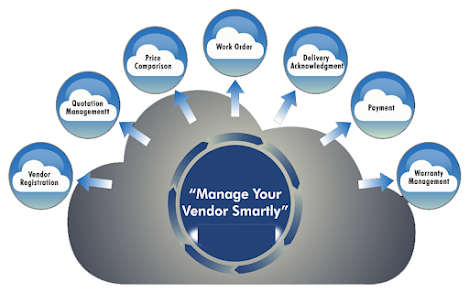How to Evaluate Vendor Management Software?
Vendor management software helps companies manage their contracts with multiple external vendors. It facilitates vendor acquisition processes, streamlines collaboration and communication with vendors, and analyzes vendor performance throughout the supply cycle. In a vendor-driven business, vendors are usually involved in all steps from design to first delivery. In a scenario such as this, it becomes imperative that an organization understands the relationship between vendors and takes decisions that help vendor management fulfill its goals while minimizing risk and other pitfalls.
To begin with, a company should understand the meaning of vendor performance and how it affects the organization. For example, a company that manufactures products used in healthcare needs to understand whether its vendors are providing quality parts and whether they are meeting delivery dates.Likewise, a manufacturing company that assembles airplanes must evaluate whether its vendor management software meets its goals of delivering cost savings, improved on-time performance, and enhanced productivity. Similarly, a service provider must assess its vendor performance based on its business requirements. Each business perspective should be addressed with the same software, including selection criteria for evaluating the most important vendors for each vertical.
The next step is to evaluate each aspect of vendor management software solutions with the help of the tools. For example, vendor management software solutions should enable a company to conduct supplier performance audits.
These audits can help the company identify potential issues and improvements along the supply chain and improve the quality and efficiency of the entire process. In addition, the tools should also help a company develop a supplier performance assessment that allows the organization to prioritize its efforts and align the strategic objectives with the key business drivers. By doing so, the company is better positioned to realize cost savings and improved efficiency in procurement processes.
Another aspect of the vendor management software that needs to be evaluated is how it can help a company streamline its purchasing activities and better manage its relationships with suppliers. For example, streamlining the procurement process reduces the time needed for suppliers to respond and re-order products, which results in increased customer satisfaction, which improves company sales and profits.
A successful supplier performance management solution should also help a company assess the relationships between different vendors regarding the quality of products, services, and the overall supply chain. In addition, a thorough evaluation of the vendor management software should provide insights into the most efficient ways of managing the relationships between suppliers and the products and services they sell.
When evaluating contract management software, several questions have to be answered first, such as what problems the software's features address? What do customers expect from the product or service? What are the most critical issues in managing vendors? Finally, how will the software help companies streamline their business processes?
Good contract management can improve the quality and quantity of the resources companies use for managing vendors. This also helps companies reduce their dependence on outside workers who may not be the best professionals. This reduces costs and protects the quality of the workforce. Successful management solutions can help companies realize the benefits of their workforce and increase productivity while reducing waste and unnecessary expenses.




Comments
Post a Comment